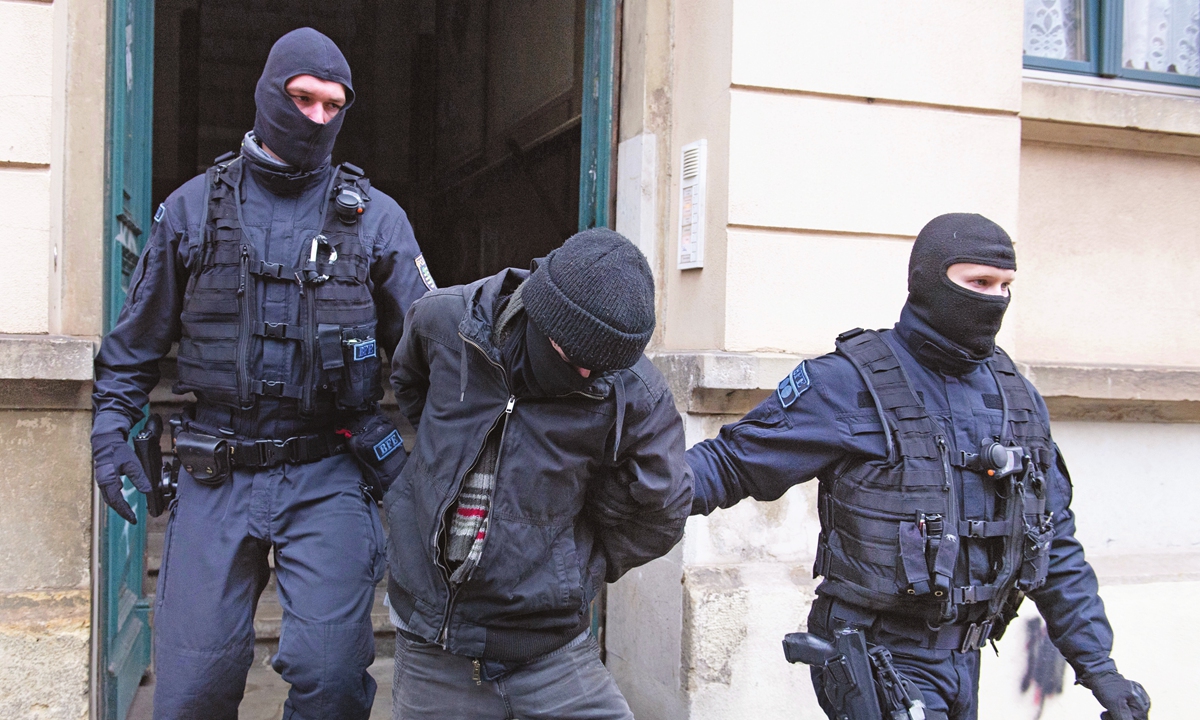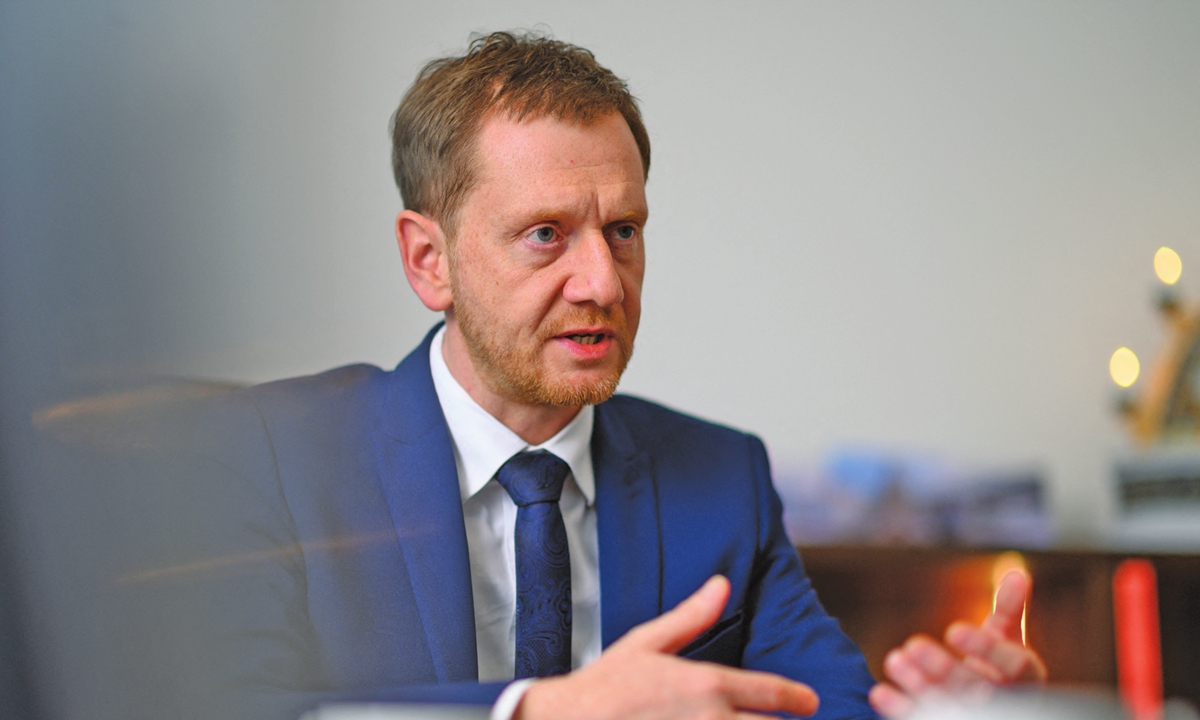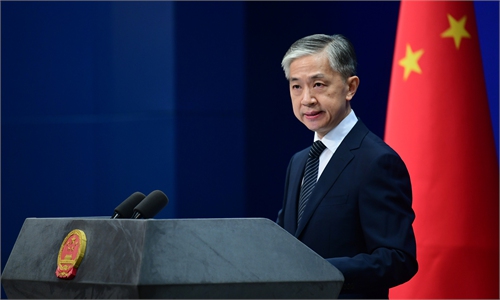German police seize weapons after anti-vax threat to top politician
Lockdown crackdown

Police lead a suspect out of a building in a raid in Germany on December 15, 2021, after threats against Saxony's Prime Minister Kretschmer. Photo: VCG

Michael Kretschmer Photo: AFP
German police seized a number of weapons in a series of raids on Wednesday, after death threats were made against a top politician over his strong backing for vaccines to fight the pandemic.
New chancellor Olaf Scholz promised to lead the response against a "tiny minority of uninhibited extremists," after an anti-vaccine group allegedly targeted Saxony state premier Michael Kretschmer.
The investigation centered on five men and one woman aged between 32 and 64 who were suspected "of preparing a violent crime that threatens the state," police said.
The case was opened after journalists from public broadcaster ZDF infiltrated an encrypted chat on the Telegram messaging app and reported on the death threats last week.
Audio messages in the group called for members to oppose the restrictions in place against coronavirus disease "if necessary with weapons."
They cited politicians as enemies, in particular, Kretschmer, who has vocally supported curbs for the unvaccinated in one of the areas of the country with the lowest inoculation rates.
Police and security forces in Saxony raided six addresses in the cities of Dresden and Heidenau, during which they seized "several crossbows and weapons."
Threats against politicians and other public figures were "not acceptable," Kretschmer said during a news conference, adding that "every effort" would be made to pursue any perpetrators.
Scholz, who took office last week, said Germany would "not allow a tiny minority of uninhibited extremists to try to impose its will on the whole of society."
'Bloody resistance'
In his first speech to parliament as chancellor, Scholz vowed a zero-tolerance policy against extremist groups like those behind the alleged threats against Kretschmer.
Germany will "use all the means of its democratic rule of law to defend itself against this tiny minority of the hateful attacking the rest of us," he said.
The rise of violent far-right extremism in Germany was the "biggest threat to our democracy," Scholz added.
A large movement with a radicalized fringe linked to right-wing extremists has emerged in Germany against health restrictions imposed during the pandemic.
ZDF revealed the contents of messages allegedly involving 100 members of the chat group "linked by their opposition to vaccines, to the state, and the current health policies," police said.
In the midst of a strong fourth wave of the virus, the national government decided to strengthen restrictions on unvaccinated people, banning them from public venues, restaurants and nonessential commerce.
Scholz has said parliament could vote on compulsory vaccination in the coming weeks, with the obligation to get the jab coming into force in February or March of 2022.
On Wednesday, police in Berlin confirmed they were investigating threats sent to several politicians across the country, which promised a "bloody resistance" against obligatory vaccines.
One of the letters, of which there were "more than a dozen," contained a piece of meat wrapped in aluminium foil.
'Radicalized'
Opposition to health restrictions is particularly strong in Saxony, in former East Germany, one of the regions worst hit by the resurgent coronavirus and where the vaccination rate is lower than the national average.
At the beginning of December, protesters gathered outside the house of the Saxony state minister of health with torches and whistles, a demonstration that was condemned by politicians.
The anti-vaccination scene was "being radicalized, not just politically but also showing a readiness to use violence," police union chief Rainer Wendt told local media.
Between 15,000 and 20,000 people are believed to belong to this extremist fringe, security expert Sebastian Fiedler of Scholz's Social Democrats told the Bild daily on Tuesday.
Germany has seen a rise in political violence in recent years, often attributed to far-right assailants.
In January, neo-Nazi Stephan Ernst was sentenced to life in prison for the June 2019 murder of pro-migration politician Walter Luebcke.
AFP



